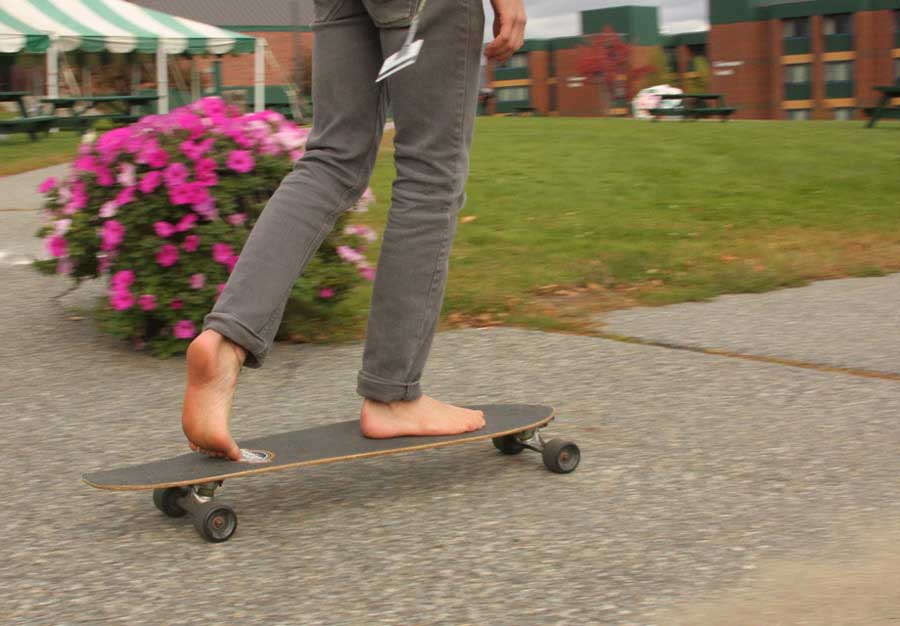Sole Discretion
With winter months approaching, the JSC community will be seeing fewer feet and more boots, but that doesn’t change the fact there’s a section of the student population that believes less is more in the way of footwear. Fewer layers insulating the foot means more connection with the earth.
Tony Gandolf, who was a sophomore last year at JSC but is now taking a reprieve from school, still visits the campus sans shoes. He isn’t sure why he does it; he just said he feels better when he does. He feels more connected with nature, and that it just makes sense.
Sophomore Ben White, majoring in outdoor education, says as soon as the snow melts he also casts aside the winter boots to reconnect with the earth.
He said people ask him all the time why he goes barefoot. In fact, once a teacher here took issue with it, saying it was disrespectful. But White said he was able to have a good discussion with the professor about why he chooses to go barefoot when he can.
“I feel like wearing shoes all the time, we lose something,” he said. “If you wore gloves all the time you’d be losing a sense with your fingers. The same goes for shoes. “
Squishing toes in the mud while walking is not just a hippie-Vermont idiosyncrasy, either. A Google search on the barefoot movement brings up websites of anecdotes and science theories on why people feel better when they ditch the shoes and go au natural.
The theory goes as thus: we are bioelectrical beings and the earth has a negative charge. According to the website for the Earthing Institute, “[c]ontact with the Earth appears to uphold the electrical stability of our bodies and serve as a foundation for vitality and health. In an age of rampant chronic inflammation and disease, ‘grounding’ ourselves by reconnecting with the Earth beneath our very feet provides a way back to better health.”
So instead of going outside and sunning themselves by soaking up the sun’s rays, students going barefoot are reconnecting and “earthing” themselves.
Mike Palagonia, director of public safety here, said there is no general policy against the act. The dining facility has health codes preventing people in without footwear, and individual classes such as science labs may have its own rules for safety reasons, but other than that it’s at the student’s discretion.
“I do want to caution students,” he said, “and I have in the past. Overall we’re a clean campus, but things happen and sometimes there may be glass pieces they could cut their feet on.”
Shoes have become such a part of our society that before babies even walk their feet are shoved into them and shoes can be prescribed to help with back pain and improve body mechanics. Is earthing for everyone?
“While I agree with people who think going barefoot is best,” Dr. Todd Faxvog, a chiropractor in Hyde Park, said, “in modern times humans do not exist on natural surfaces. I think walking without shoes is great as long as it is on grass or dirt, where the material naturally cushions us.”
Otherwise, he counsels, use the appropriate footwear for the situation. Wear a work boot when using ladders, use athletic shoes for running and jumping only, and clad your feet in shoes with natural insoles such as cork for when you are standing around or walking for long periods.
“Above all,” he said, “ditch the crummy flip-flops.”






